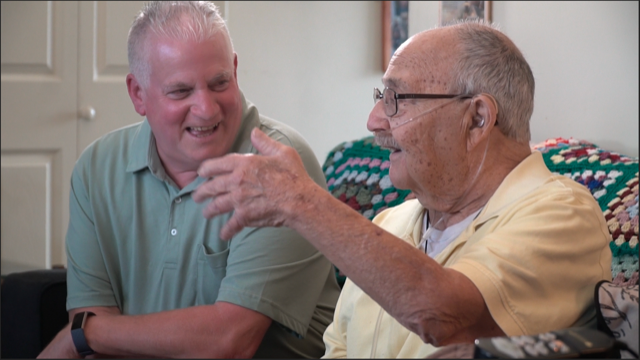Caring for a loved one with Alzheimer’s or dementia poses many challenges for caregivers and family members alike. Both Alzheimer’s and dementia are progressive biological brain disorders which can affect speech, memory, mood, and a person’s ability to think clearly. These disorders not only significantly affect the person afflicted, but they also add stress to those caring for them. Below are a few practical approaches that may be helpful to utilize when communicating with someone who has Alzheimer’s or dementia.
Patience is Key : Be patient with your loved one. If they are taking longer than normal to answer a question or complete a task, just remember that although it might seem simple to you, it can be extremely difficult for them. It can also be helpful to speak to them in simple words, and not ask them too many questions all at once. Creating a calming and peaceful environment for your loved one will help them to understand your message.
Distracting and Redirecting : It’s important to know how to calm your loved one if they start getting agitated or upset. A useful tool for these situations can be to change the subject altogether and redirect them to something else, such as a walk or a meal. You might say something along the lines of, “I don’t want you to be upset, let’s go get something to eat.” Connecting with your loved one on an emotional level during a stressful time and then redirecting them to something different will usually ease their stress and get them back on track.
Reassurance and Affection : People who have Alzheimer’s or dementia often don’t feel like themselves which can lead to feelings of anxiety, insecurity, and confusion. Sometimes it may seem like these feelings are brought on in your loved one with no warning or trigger; avoid invalidating their feelings by telling them there is nothing wrong. Instead, focus on the emotions they are displaying in that moment which are genuine and respond with verbal expressions of comfort and support. Sometimes physical expressions of reassurance may be comforting to your loved one as well such as hand holding, or a hug.
Contact us to learn more about Charter Oak Home Care and how a private caregiver may be suitable for your loved one with Alzheimer’s or dementia.

